Ulysse Nardin
Freak Cruiser in Rose Gold
On Brown Crocodile Strap with Black Arabic Dial
| Model #: | 2056-131 |
| Case Material: | 18KT Rose Gold |
| Case Size: | 45mm |
| Movement: | Mechanical |
| Dial: | Black Arabic Dial |
| Bracelet: | Brown Crocodile Leather |
| Retail Price: | $87,500 |
We are sorry, but this watch has already sold to another client
Description
This watch is also known as: 2056/131, 2056.131, 2056131
The Freak burst onto the scene in 2001. The Freak started from a carousel “tourbillon” project at Ulysse Nardin. It was based on an idea by Carole Forestier, who had just received the Prix de la Fondation Abraham-Louis Breguet for a central carousel tourbillon design. Rolf Schnyder decided to involve Oeschlin in this project, as the development team was facing several challenges. With only about 10 hours of power reserve, a drastic evolution of the movement was necessary to create a functional watch.
When Rolf W. Schnyder and Ludwig Oechslin joined forces in the 1980s, they transformed what was essentially a traditional, yet innovative watch manufacturer, into one of the most exciting brands on the market. Together, they explored new paths and developed new ways of thinking about watchmaking. The Freak of 2001 was just one example of their groundbreaking partnership, bringing a new vision of a carrousel movement to life. The 42.5mm case had no crown, no dial and no hands. The timepiece relied on a cleverly designed carrousel tourbillon, albeit a tourbillon by technicality since its balance is housed in a revolving structure. Unlike a traditional tourbillon that completes a rotation every minute, the Freak’s tourbillon completes a rotation once every hour. The debate about this technicality continues within the watch community until today.
The Freak was the first watch to make effective use of silicon. It was also one of the few examples of a watch with a brand new escapement, something that was almost unheard of at the time.
In its 20-year history, the Freak has been blazing its own trail, evolving in many directions. Still, it has always followed the same guiding principles, to show as much as possible of its inner workings and to be a laboratory on the wrist. In this respect, Ulysse Nardin has used this groundbreaking concept as the platform for a number of innovations.
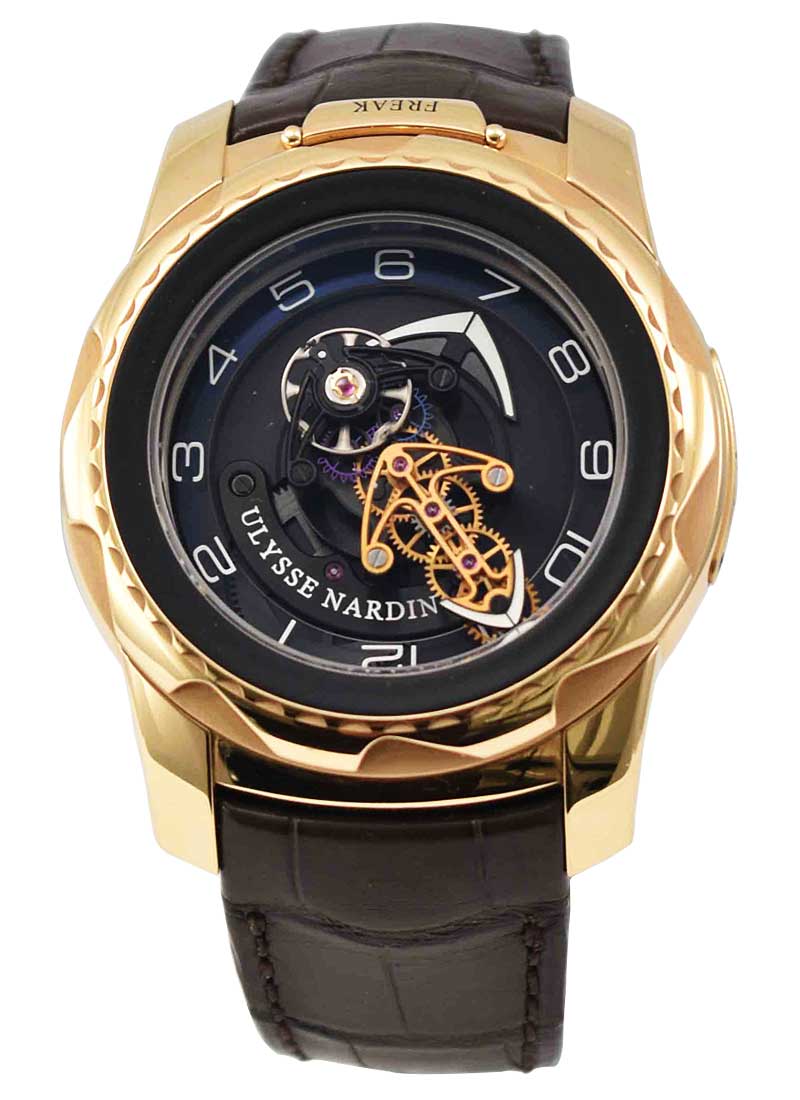
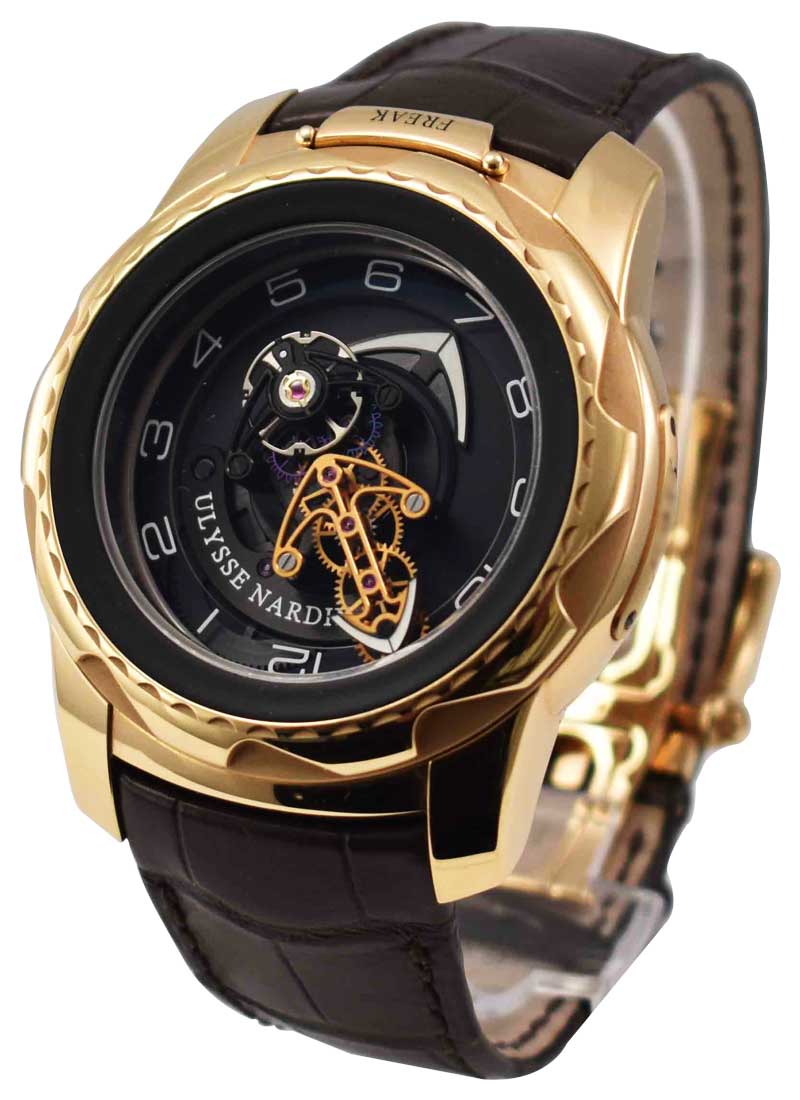
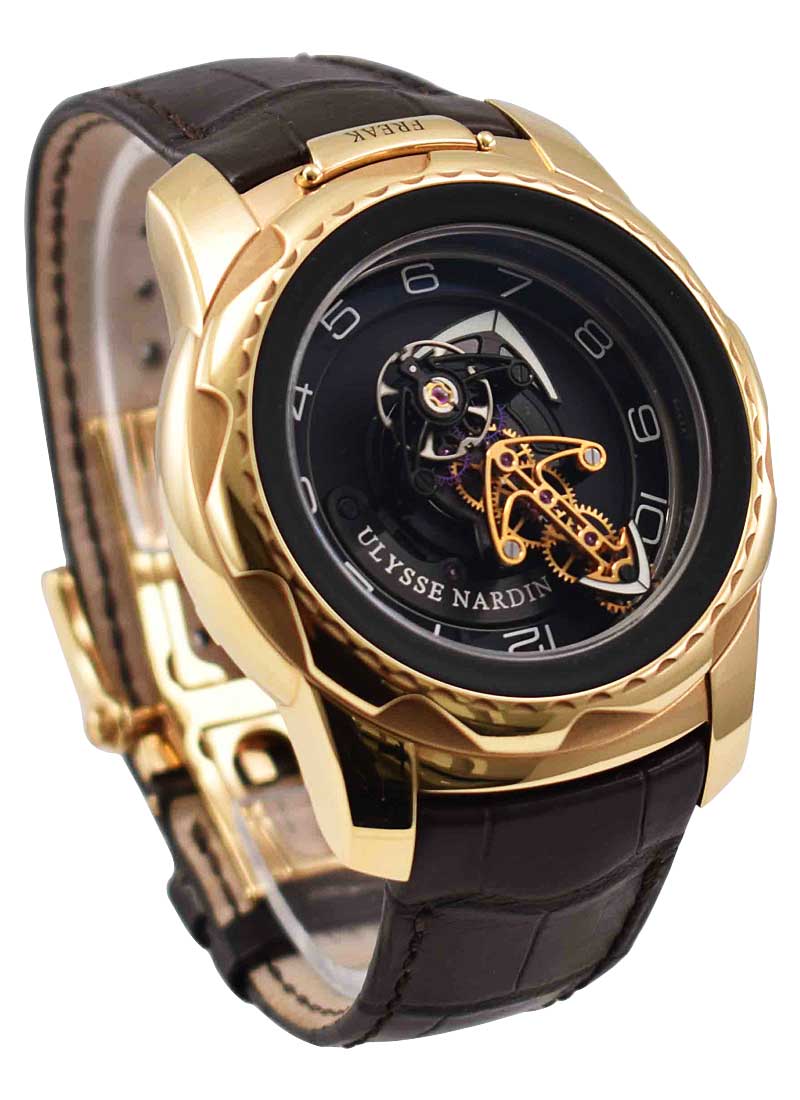
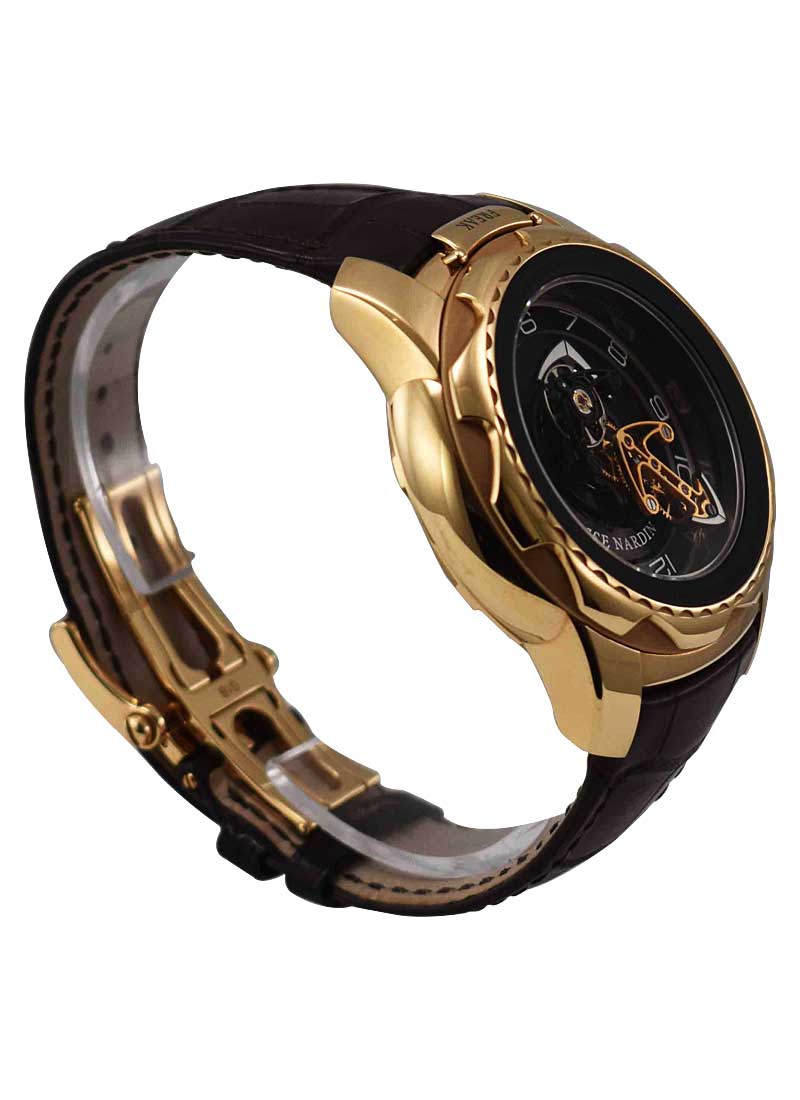
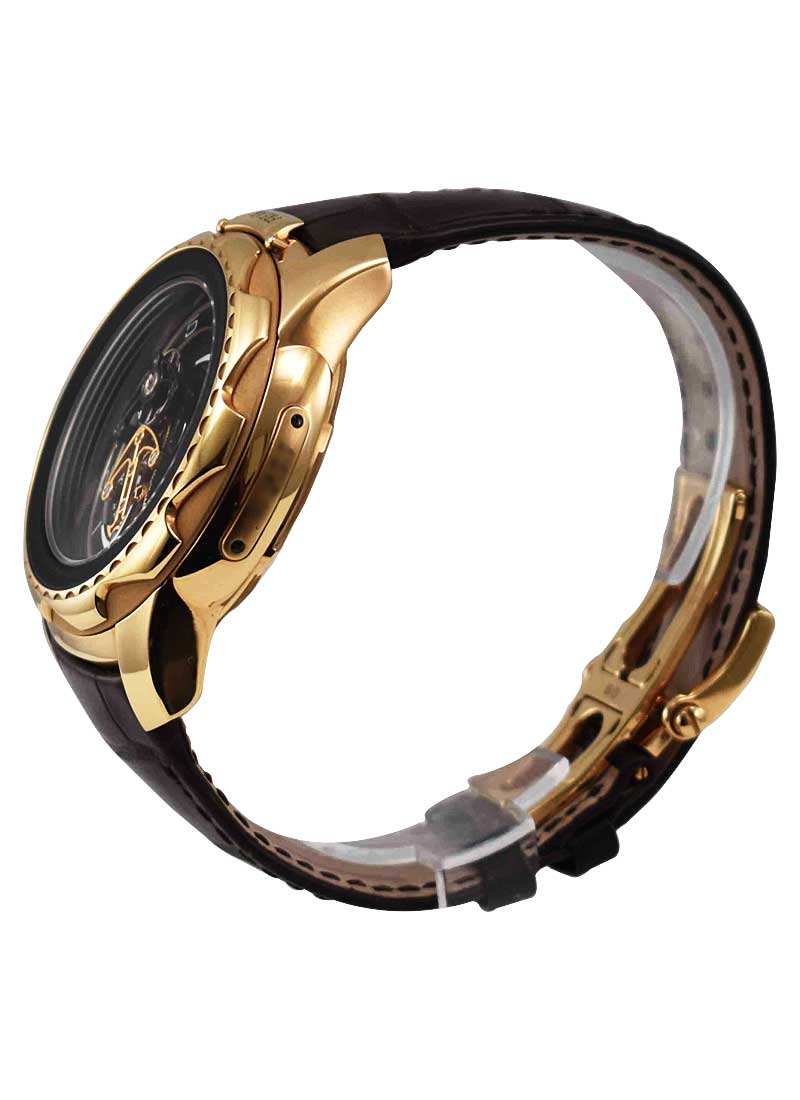
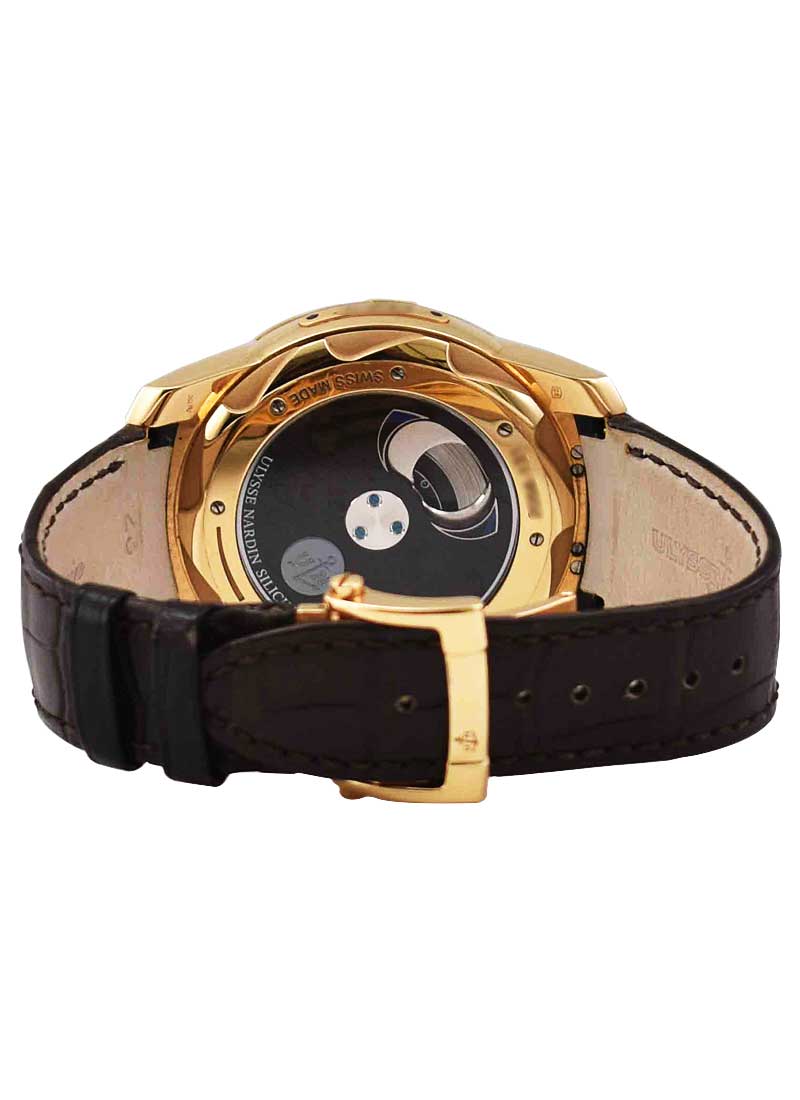
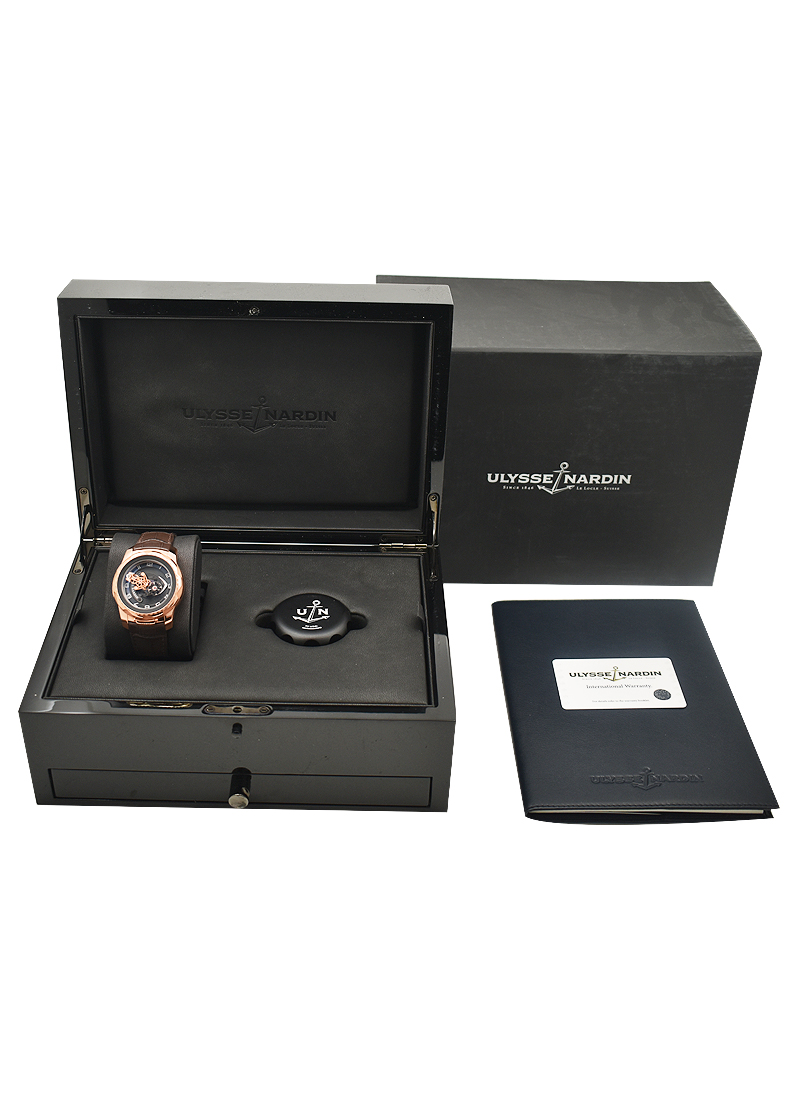
 whatsapp
whatsapp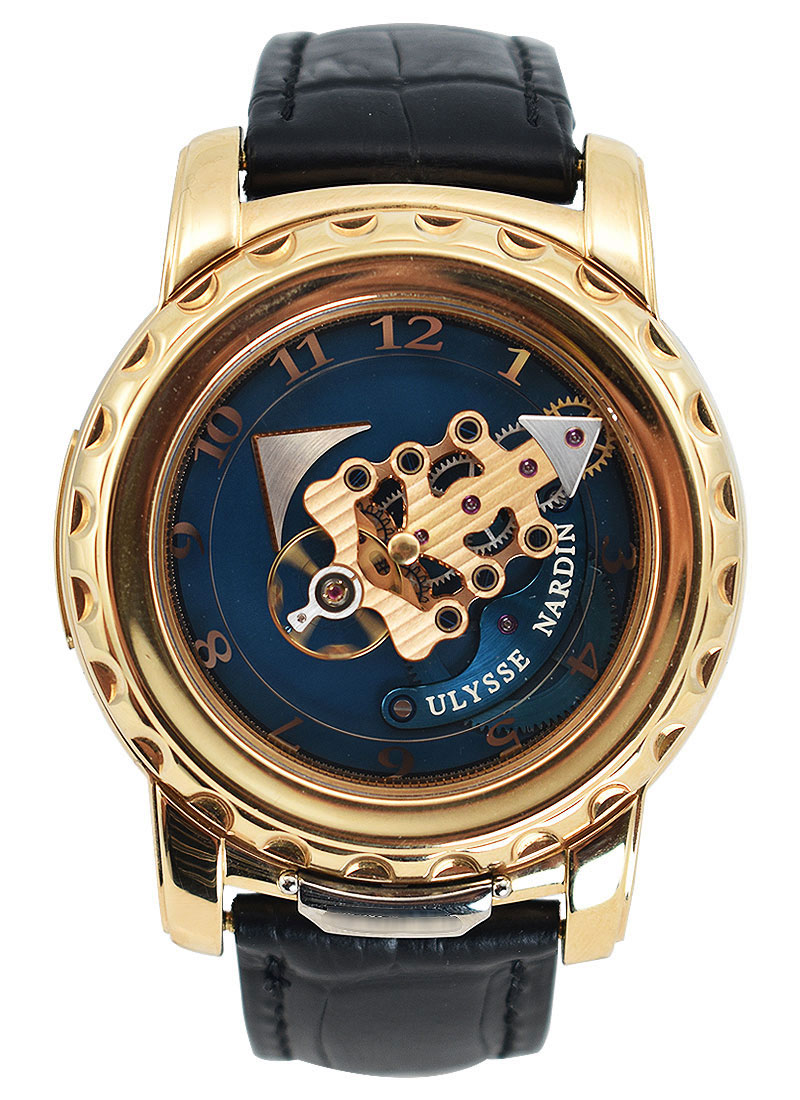
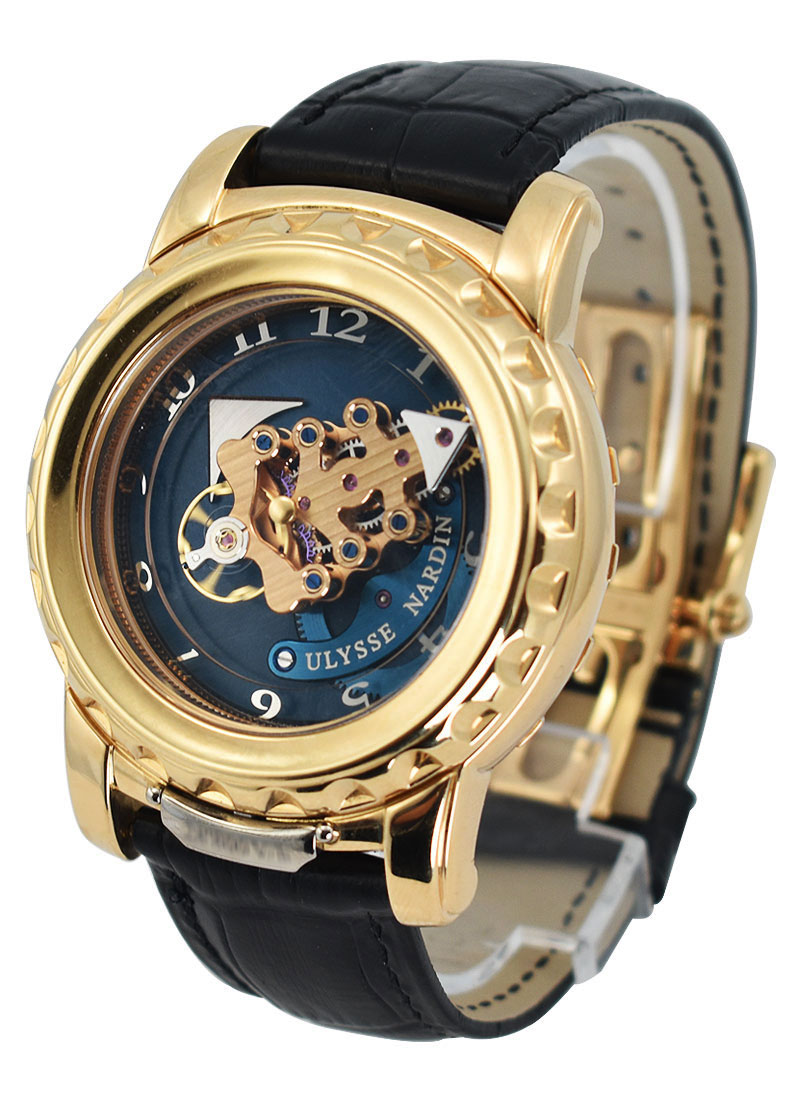
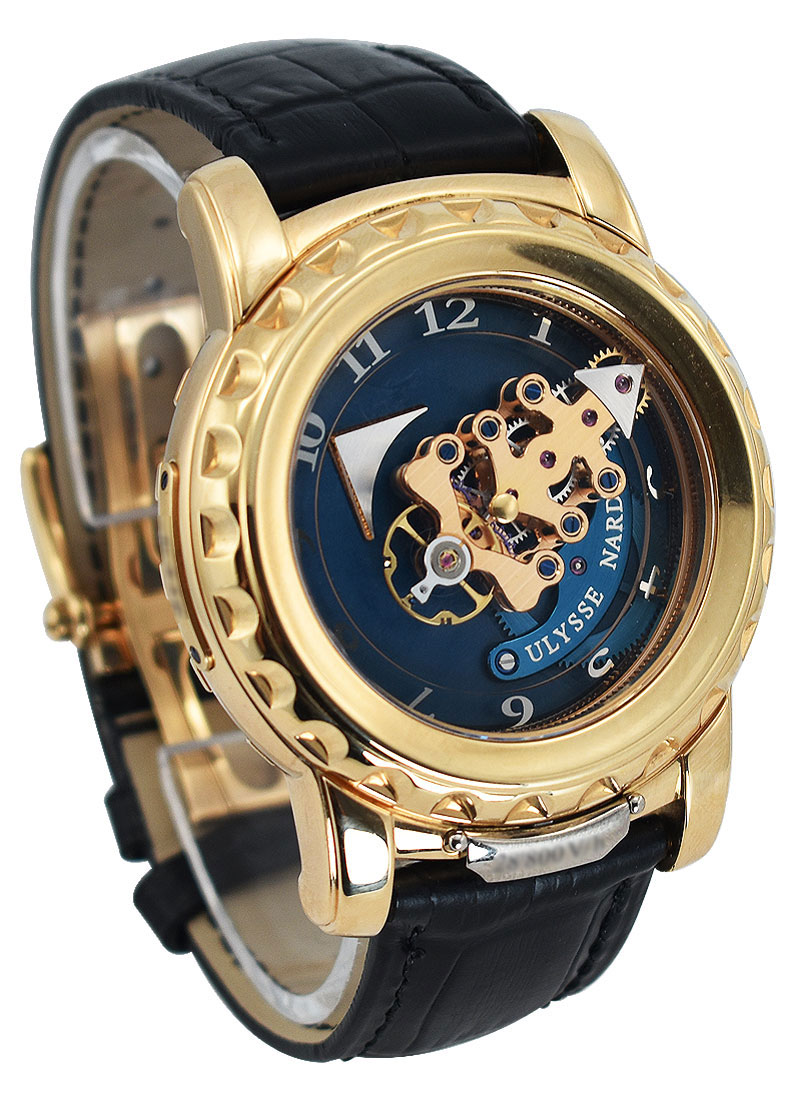
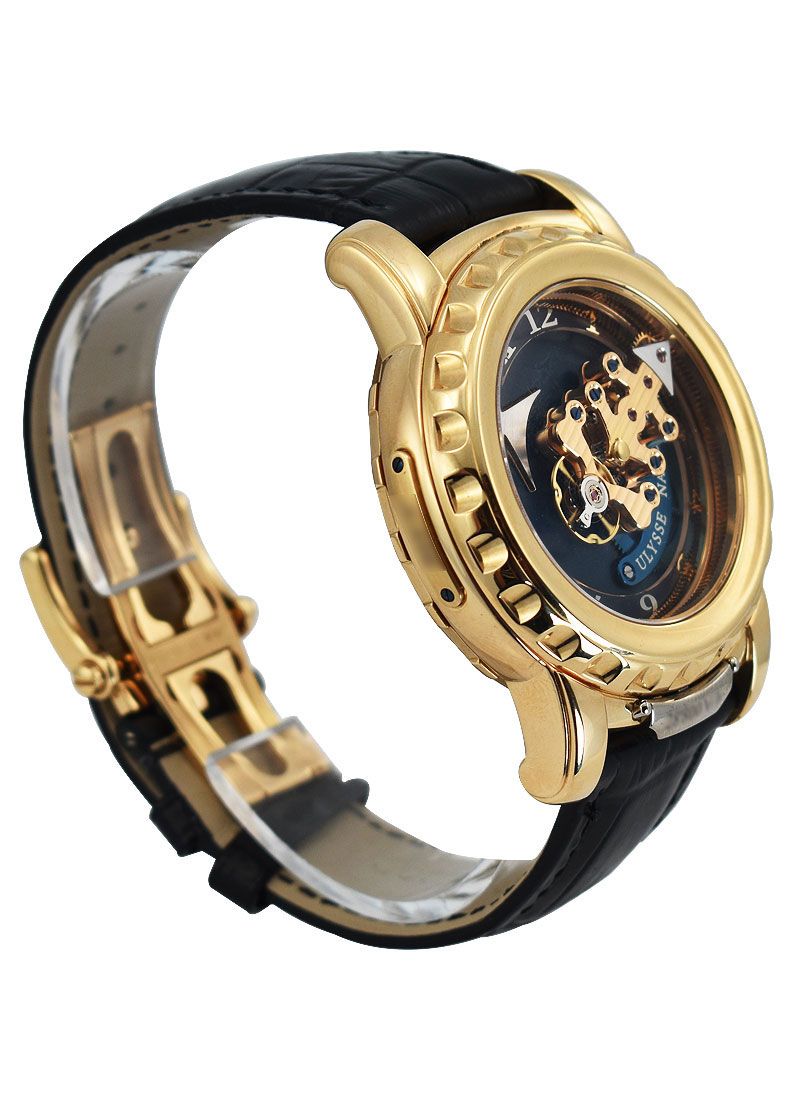
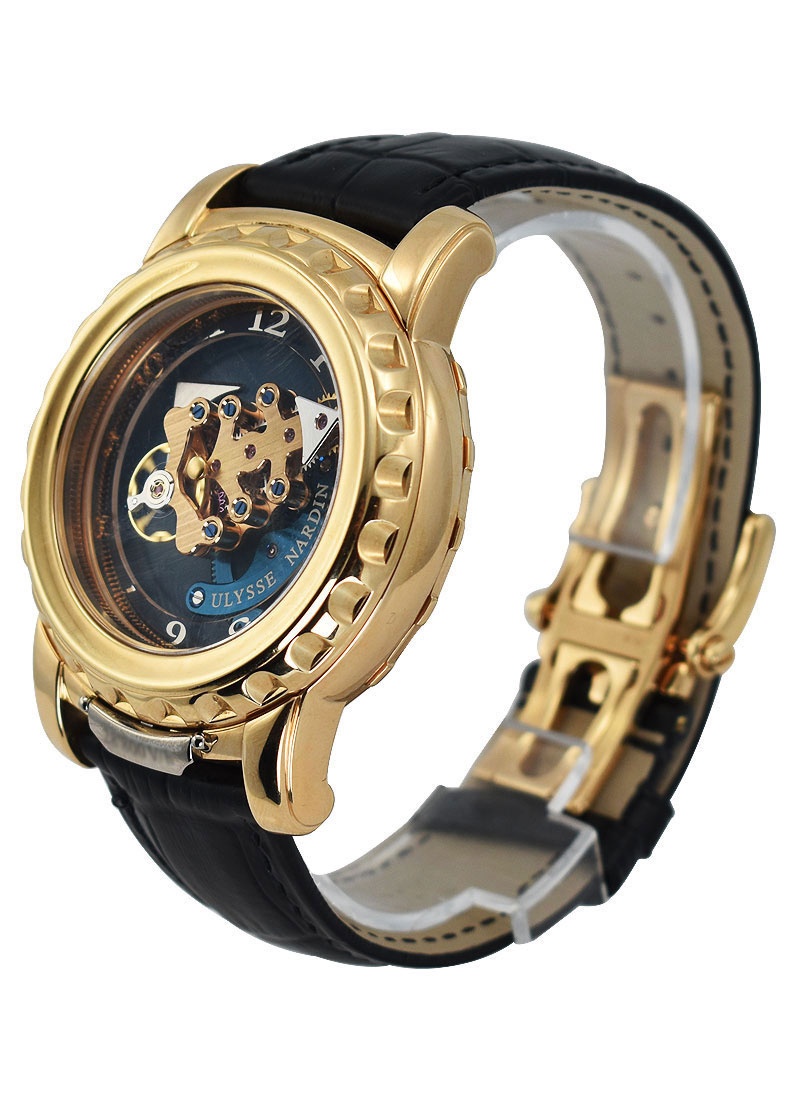
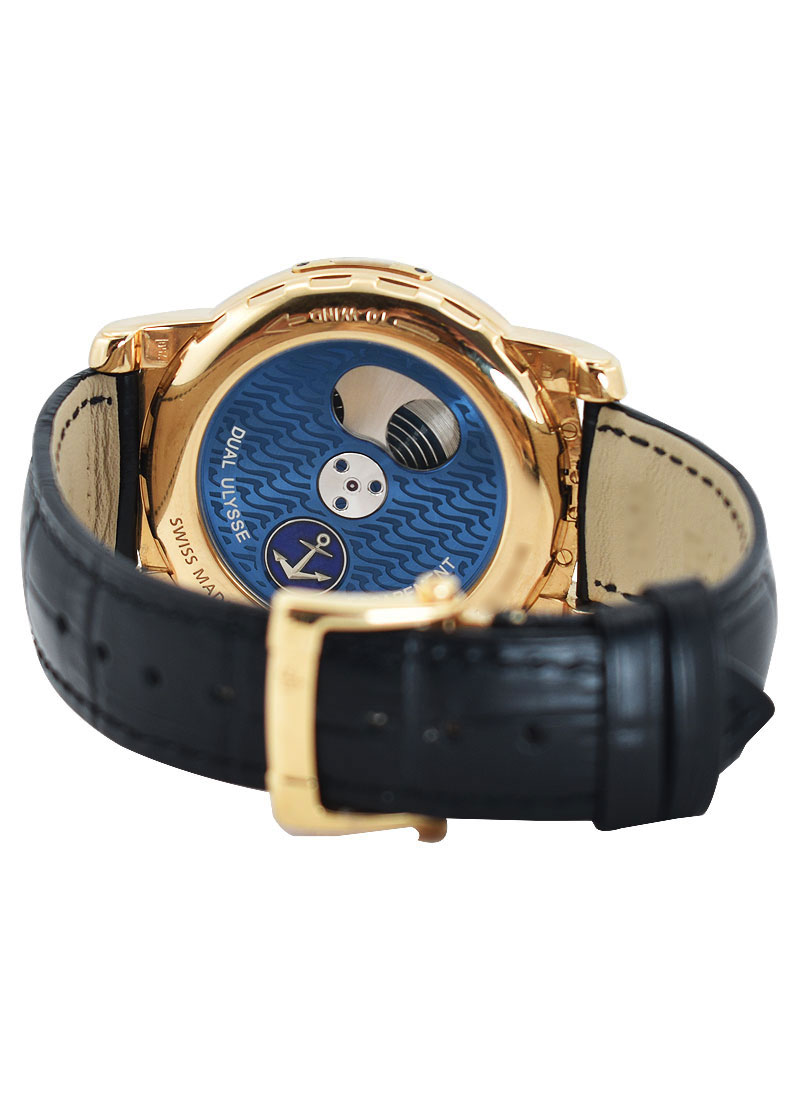
.png)